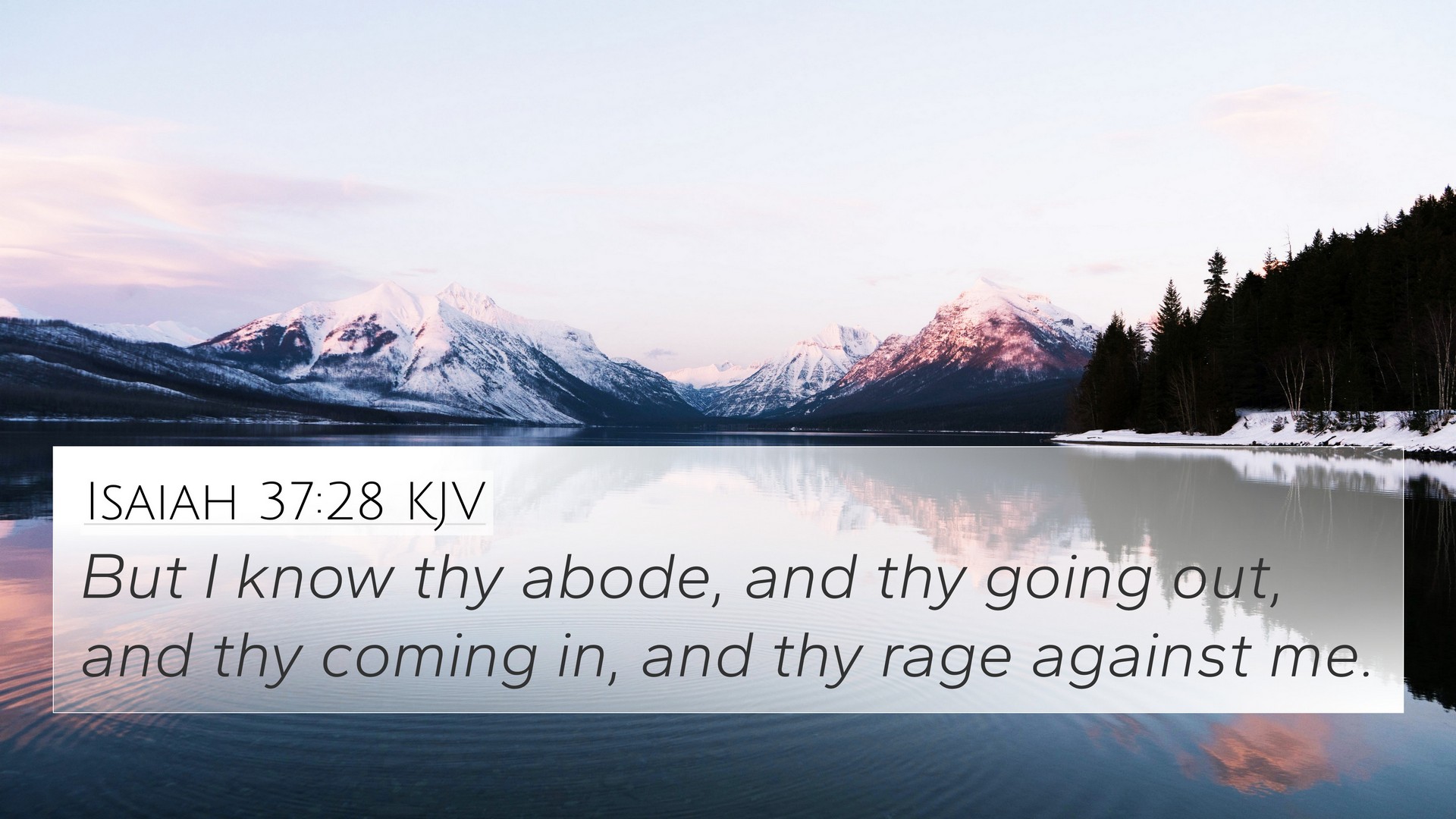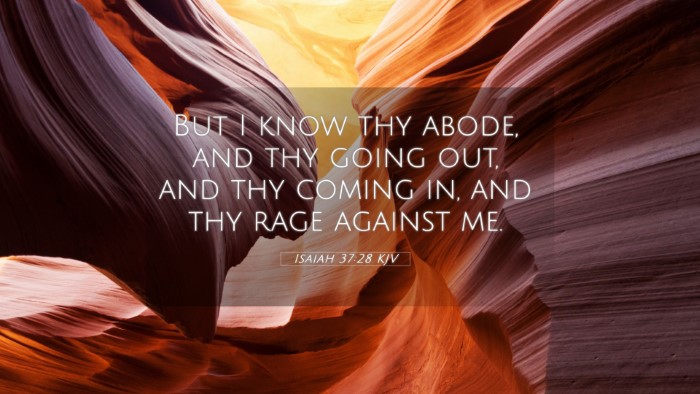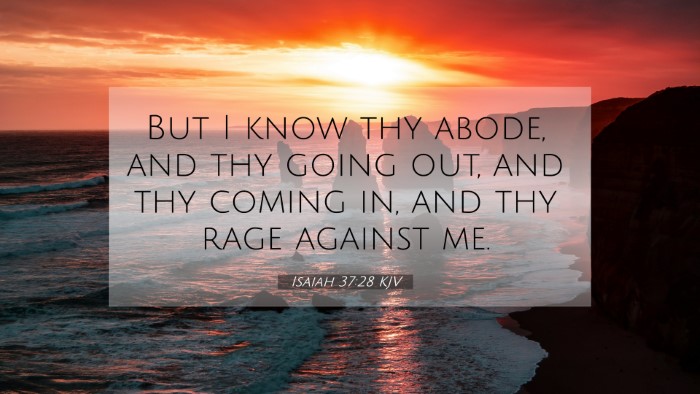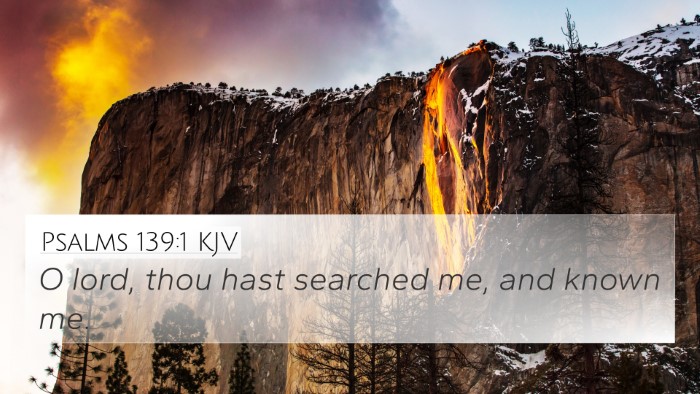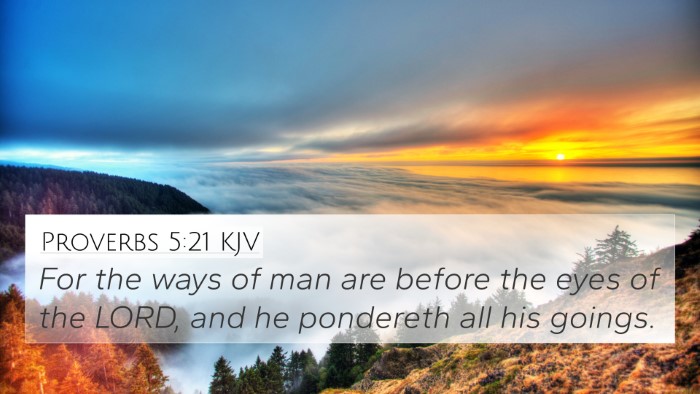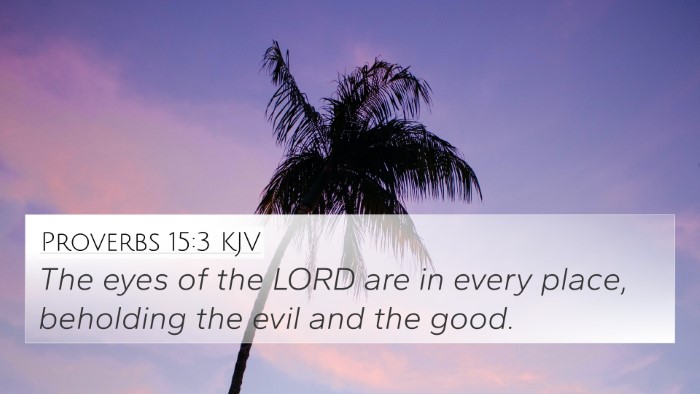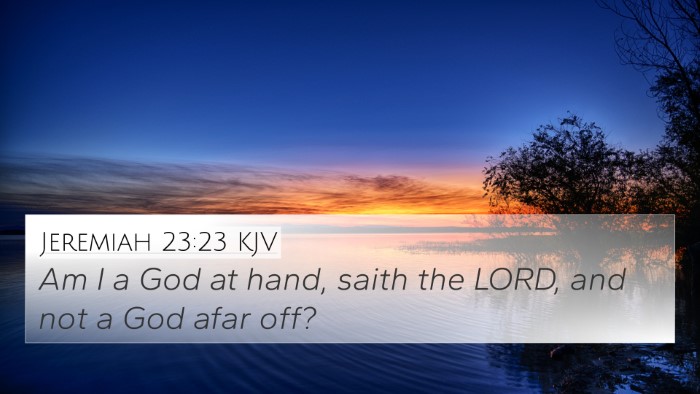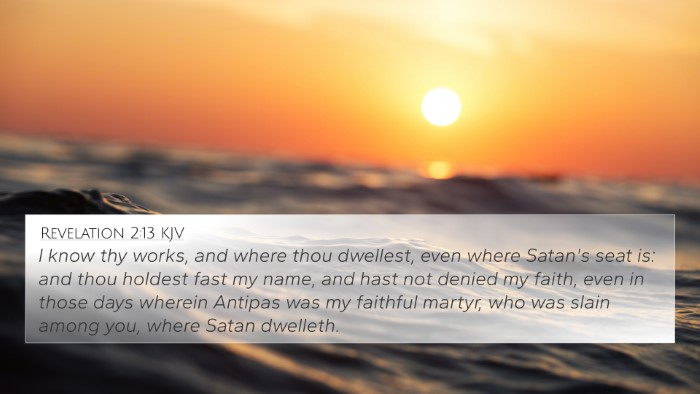Understanding Isaiah 37:28
Isaiah 37:28 states: "But I know your sitting down and your going out, and your coming in, and your rage against me." This verse occurs in the context of God’s response to the threats posed by the Assyrian king Sennacherib against Jerusalem. In this passage, the Lord, through the prophet Isaiah, asserts His omniscience—actively showing that He is aware of the Assyrian king’s every movement and intention.
Summary of Insights from Commentaries
The verse beautifully encapsulates the overarching theme of divine sovereignty and knowledge. Matthew Henry points out that God’s awareness extends to every detail of our lives, reinforcing the notion that no one can oppose Him without being observed and known. Albert Barnes elaborates on the implications of this knowledge, implying that God’s understanding of human behavior influences His judgments. Adam Clarke highlights the essence of the divine interaction, emphasizing that human rage and scheming cannot escape God's all-seeing presence.
Key Themes and Concepts
- Omniscience of God: God knows every aspect of our lives—our actions and our motivations. This emphasizes His capacity to judge justly.
- Divine Authority: The verse underlines the futility of opposing God, as every plan devised by humans is fully known to Him.
- Human Rage Against God: The mention of rage points to the typical human response when facing divine truth, showcasing the struggle between divine authority and human folly.
Bible Verse Cross-References
Isaiah 37:28 connects deeply with several other scriptures across both the Old and New Testaments. Here are significant cross-references:
- Psalm 139:1-4: A reflection on God's intimate knowledge of our thoughts and actions.
- Jeremiah 16:17: God observes all our ways, highlighting the reach of divine knowledge.
- Matthew 10:30: Even the hairs on our head are all counted, reinforcing the intimacy of God’s awareness.
- Proverbs 15:3: The eyes of the Lord are in every place, keeping watch on the evil and the good.
- Hebrews 4:13: No creature is hidden from God’s sight, emphasizing His omniscience.
- Isaiah 40:27-28: The Lord does not grow weary or faint; He knows our paths even when we feel abandoned.
- Job 24:1: Why are not times of judgment kept by the Almighty? This highlights human confusion over divine timing and awareness.
- Luke 12:7: Even the smallest details of your life are under God’s scrutiny, affirming that God cares deeply about our wellbeing.
- Romans 11:33: God’s depth of knowledge and wisdom, beyond tracing out His paths.
- 1 John 3:20: If our hearts condemn us, God is greater than our hearts and knows everything.
Connections Between Bible Verses
In examining Isaiah 37:28, we see how God’s knowledge plays a pivotal role across different biblical narratives. The connections between these verses present a mosaic of God’s involvement in human affairs, establishing a thematic framework of divine oversight and the contrast between human limitations versus divine omnipotence.
Inter-Biblical Dialogue
The themes prevalent in Isaiah 37:28 encourage a deeper exploration of how God’s sovereignty is echoed in other scriptures, fostering a greater understanding of biblical teaching on divine authority. By cross-referencing, the believer can gain comprehensive insights into God's character and His expectations for humanity.
Conclusion
Isaiah 37:28 serves as a powerful reminder of God’s omniscient presence in our lives. The insights garnered from public domain commentaries highlight how this knowledge shapes our existence and the prophetic assurances given to God’s people. By utilizing tools for Bible cross-referencing, believers can explore the broader context of scripture, enriching their understanding and application of God’s Word in their lives.
